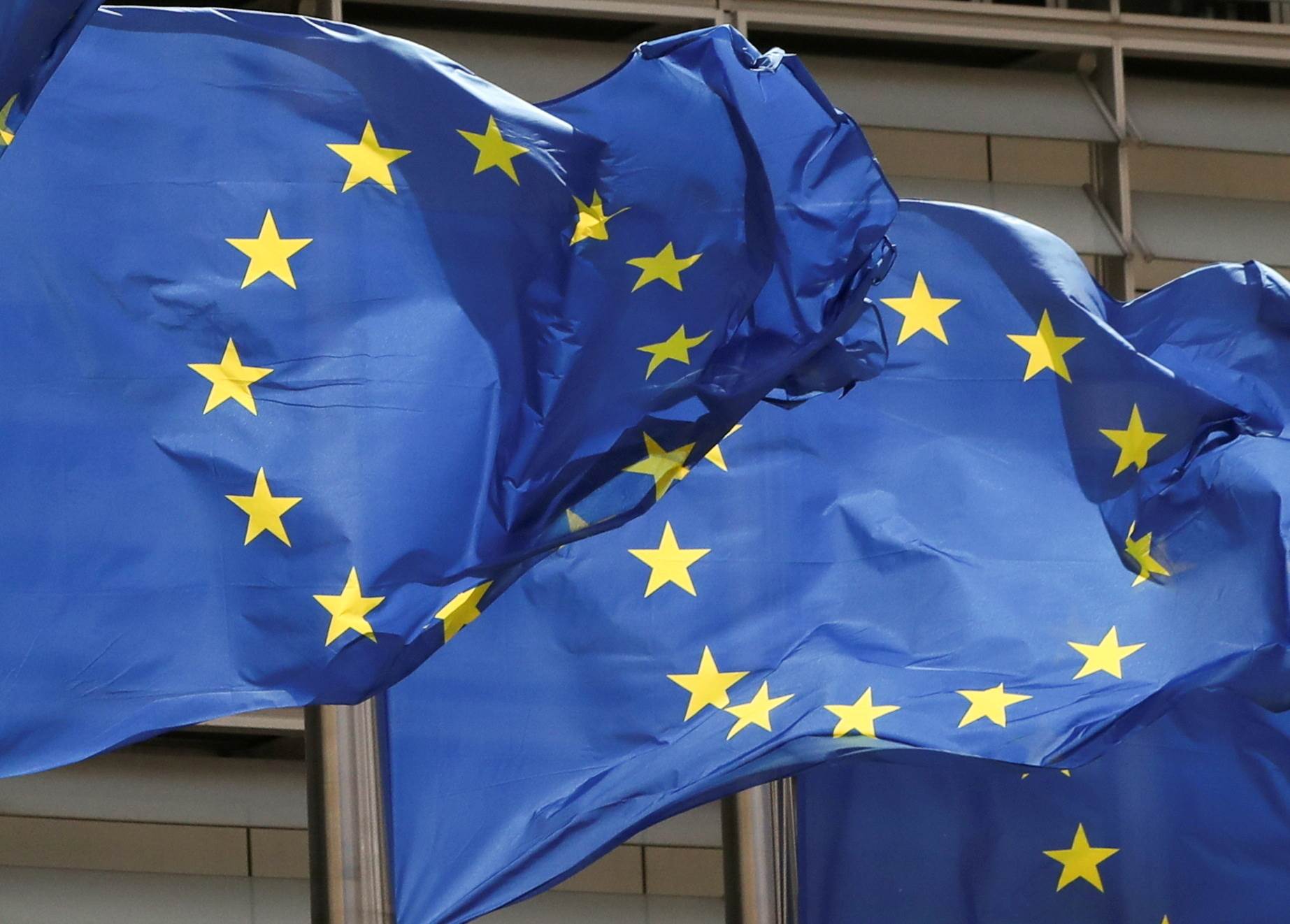EU tries to uphold eastern influence in face of Russia
Brussels seeks to uphold its influence on the eastern borders of the EU against Russia as tensions flare up in the east over Ukraine and other eastern countries.
-

European Union flags flutter outside the EU Commission headquarters in Brussels, Belgium May 5, 2021 (Reuters)
The European Union is trying to uphold influence on several eastern European countries that once were Soviet republics through a Wednesday summit.
The "Eastern Partnership" had already lost a member to Russia when Belarus sided with Moscow following EU allegations of "election fraud" on the re-election of President Alexander Lukashenko.
The remaining five, Ukraine, Moldova, Georgia, Armenia, and Azerbaijan, will be sending leaders to Brussels to meet the heads of the 27 member states just one day ahead of an EU summit.
"The timing of this summit has been well chosen because these countries are going through a complicated spell," a senior European official said.
Although arguing the time was right, Brussels is expecting the encounter to be far from easy.
The western member states of the EU oppose Russia; however, they know they cannot offer the eastern countries a path to EU membership.
Each step of the process needs unanimous support from the bloc's 27 nations, and one European minister said some member states were pushing to accept Georgia and Ukraine into the EU. However, "others say that is not possible," he said.
The Eastern Partnership summit is set to begin at 15:00 GMT on Wednesday, and before then, EU and national leaders will have side meetings on some regional issues.
Ukrainian President Volodymyr Zelensky will meet his French counterpart Emmanuel Macron and Germany's newly inaugurated Chancellor Olaf Scholz.
Berlin and Paris are expected to meet with Zelensky to discuss Ukrainian tensions with Russia, which is facing western allegations of a troop buildup on the border with Ukraine and preparing for a military invasion - accusations Russia has long been denying.
The West has threatened Russia with "heavy sanctions," but President Vladimir Putin said earlier this month Moscow pursues a peaceful foreign policy; however, it has the right to defend its security.
The meeting between Kiev and Berlin comes amid tense relations between the two as the former's leader accuses Germany, under former Chancellor Angela Merkel, of blocking a weapons shipment from NATO members to Ukraine "to defend itself."
Russian President Vladimir Putin said Tuesday he wanted "immediate" talks with the United States and NATO over security guarantees amid the rising tensions between Russia, Ukraine, and the West.

 3 Min Read
3 Min Read








